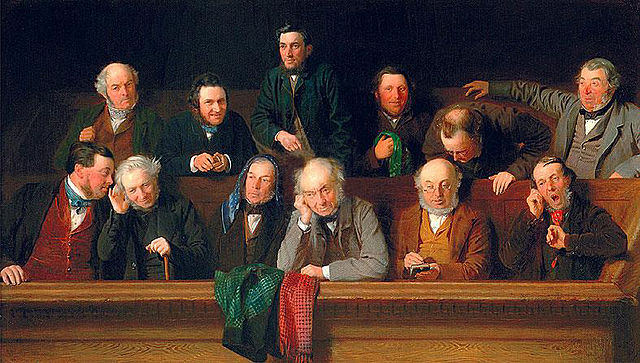United States constitutional criminal procedure
The United States Constitution contains several provisions regarding the law of criminal procedure.
The Warren Court (1953–1969) issued several landmark constitutional decisions concerning criminal procedure, including Gideon v. Wainwright (1963), Brady v. Maryland (1963), and Duncan v. Louisiana (1968).
The U.S. Bill of Rights
A grand jury in 1913
The Declaration of Independence accused King George III of "transporting us beyond Seas to be tried"
Article Three of the United States Constitution
Article Three of the United States Constitution establishes the judicial branch of the U.S. federal government. Under Article Three, the judicial branch consists of the Supreme Court of the United States, as well as lower courts created by Congress. Article Three empowers the courts to handle cases or controversies arising under federal law, as well as other enumerated areas. Article Three also defines treason.
Secretary of State James Madison, who won Marbury v. Madison, but lost judicial review
A nineteenth-century painting of a jury
Iva Toguri (pictured), known as Tokyo Rose, and Tomoya Kawakita were two Japanese Americans who were tried for treason after World War II.







